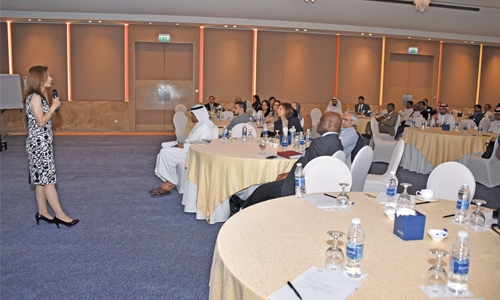KPMG holds seminar on money-laundering
Manama : Around 90 senior executives, compliance officers, and Internal Audit professionals from financial services institutions across the kingdom, attended a session organized by KPMG in Bahrain to raise awareness of money laundering-related risks.
The half-day seminar, titled ‘Anti-money laundering (AML): Trends and challenges in a digitalized world’, examined the increasing use of digital technologies in financial crimes and their impact on business operations.
Welcoming the attendees, Jeyapriya Partiban, Partner and Head of Risk Consulting at KPMG in Bahrain, showcased the devastating impact of money laundering – not only across the financial sector, but society as a whole. “Money laundering is the process whereby criminals attempt to conceal the origin and ownership of proceeds generated from criminal activities, and attempt to transact it as legitimate funds. When this type of activity remains undetected, it can deter investments and destroy competition. It also diminishes government tax revenues and diverts budgets away from vital economic development projects, such as health, education and social welfare. This also then forces the government and relevant national agencies to dedicate valuable funds and time towards monitoring and mitigating crime.”
As digital technologies have improved and diversified, so have the threats facing organizations. For example, developments designed to support customer preference for real-time money transfers are making money laundering to fund criminal activities much easier. However, banks and financial institutions can play a key role in detecting and combating money laundering by complying with the global and local AML regulatory frameworks.
In her keynote speech at the event, Katerina Pagoni, Associate Director and Head of AML in the Forensic practice at KPMG in the UAE, explored the new and emerging risks posed by technological advancement, touching on hot topics such as cryptocurrency and distributed ledger technology. “Firms should consider replacing their historical approach to fighting financial crime with innovative technology. They should seek to integrate intelligent automation in their compliance programs and leverage new technology capabilities to effectively fight financial crime in the digital era – ensuring, however, that any automation is aligned with the firm’s risk profile.”
“In order to be competitive while maintaining exemplary compliance, organizations and in particular financial institutions should embrace new technologies, innovate in compliance as well as the business and seek ways to become more agile.”
Related Posts

